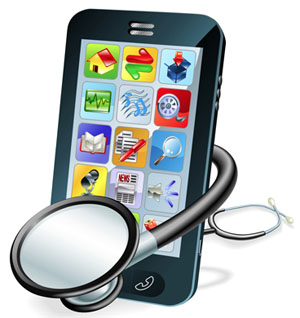 The rise of mobile that we’ve seen over the past few years is reminiscent of the computer boom in the 1980’s. As more and more households became computer owners people began turning to the computer for more and more.
The rise of mobile that we’ve seen over the past few years is reminiscent of the computer boom in the 1980’s. As more and more households became computer owners people began turning to the computer for more and more.
Then, in the 90’s when the Internet started to catch on the trend shifted again. Even in the days of Internet Service Providers like AOL and Prodigy I remember being able to shop at Sears or see some of my credit card bills through relationships Prodigy had with service providers.
As we moved into web 1.0, more and more people started using the Internet to research health topics. DrKoop.com was very popular with millions of Americans as a way to find out information about common ailments. Web 2.0 and the advent of the EMR (electronic medical record) made the computer and the web, important tools in managing healthcare.
Now turning to the mobile device is only natural, so much in fact that use of mobile as a health tool increased 27% from 2012 to 2013 according to mobihealthnews.Mobihealthnews cited the most recent Manhattan Research’s Cybercitizen Health US Survey.
The study found that 45% of online adults with a chronic condition reported that the internet was essential to managing that condition. For those without chronic condition’s 44% of online adults said the internet was essential for health and medical decision making.
As for smartphone users, 38% of them said that the phone was essential for finding health and medical information.
Of those with Chronic medical conditions here’s how they ranked in the use of mobile health:
1. Cystic fibrosis patients
2. Growth hormone deficiency patients
3. Acne patients
4. ADD/ADHD patients
5. Hepatitis C patients
6. Migraine patients
7. Crohn’s disease patients
8. Chronic kidney disease patients
9. Generalized anxiety disorder patients
10. Bipolar disorder patients
“Many pharma marketers still underestimate both the opportunity and complexity of the mobile channel,” said Monique Levy, Vice President of Research at Manhattan Research. “Many marketers will need to reset assumptions around when, where and how these devices are used for health. What’s clear is that patients are using these devices throughout the patient journey, for quick questions and deep research, and increasingly to actually manage their condition and care.” – See more at: http://manhattanresearch.com/News-and-Events/Press-Releases/mobile-health-95-million#sthash.ZkO5QXVy.dpuf
This of course represents a wide area of opportunity for startups across the country and around the world to develop mobile apps specifically geared to these chronic conditions.

